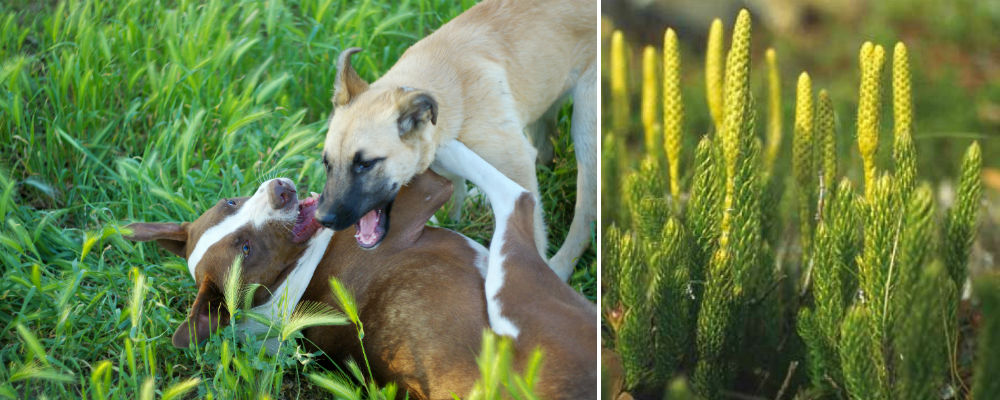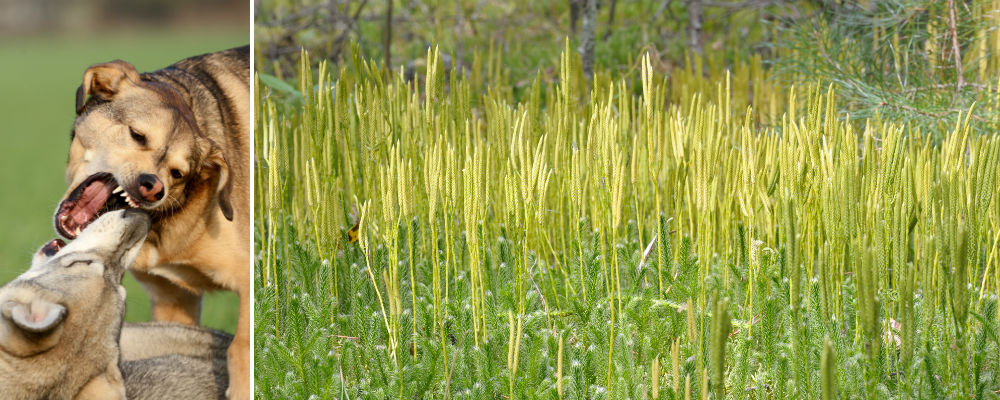Remedies in Animal Homeopathy

#1 – Lycopodium
I am often asked about my favourite remedy for animals. It would be impossible to choose just one, but I do particularly love Lycopodium, made from the spores of the Staghorn Club moss.
Millions of years ago Lycopodium clavatum was a mighty tree, but today it has been reduced to a comparatively insignificant moss. What this brings to our remedy picture is a sense of inadequacy and a lack of self-confidence. The Lycopodium animal will try to overcome this lack by being a bit of a bully, but will not attempt to advance himself to the head of the group. He will remain subservient to those above him, and pick on those below him – you could say this remedy is for both the bully and the bullied. (I say “he” as frequently they are male, but we certainly see Lycopodium females as well.)
This lack of self-confidence also produces performance anxiety. The Lycopodium competition horse can be a right pain in the neck before going into the ring, but once in there he will perform well, and have you wondering why you were worried. He doesn’t handle any kind of change well, and this too will make him anxious. This remedy also needs company, but doesn’t need to be on your lap like, say, Pulsatilla – the Lycopodium dog will be happy to know that you’re somewhere nearby. While generally appearing quite passive, if cornered he can resort to explosive aggression – another signature of the spores, which are so flammable they were once used in fireworks.
Physically we see lots of digestive issues in this remedy, with much bloating and rumbling and passing of wind, as well as issues with the liver. This animal will have a good appetite and can’t miss a meal, but he’ll usually be satisfied after a small amount. As a polychrest remedy it has an affinity with many other body systems, especially the urinary organs and respiratory tract. Conditions are often right-sided, or move from right to left. Typically these animals will feel worse from around 4pm to 8pm.
Appearance-wise, these animals can look older than they are, with greying muzzles and complaints that are often seen in more senior animals. They can be quite lean and even emaciated-looking, especially in the front. My Lycopodium patients have included animals with skin conditions, urinary disorders, digestive upsets, performance anxiety and dominance issues, to name just a few. This is but a tiny snapshot of this widely-used, fascinating remedy!
Levonne Kelly DipHom (Animal Health), RCHom, Cert Equine Practice
Animal Homeopathy Tutor

